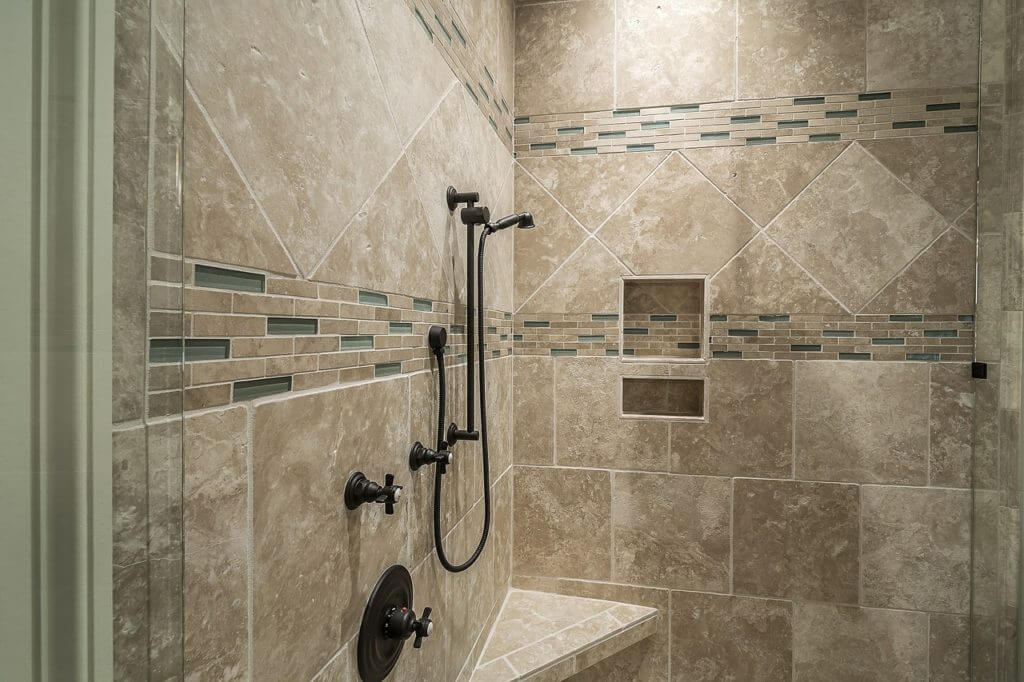What Type Of Tile Is Best For Shower Walls

When it comes to designing a functional and aesthetically pleasing shower space, selecting the right tiles is crucial. The choice of shower walls tiles not only influences the overall look and feel of the bathroom but also determines the durability, maintenance, and performance of the shower enclosure. In this guide, we’ll explore the various types of tiles suitable for shower walls, highlighting their characteristics, advantages, and considerations to help you make an informed decision.
I. Introduction to Shower Wall Tiles
Shower wall tiles serve as both a practical and decorative element in bathroom design. They protect the walls from moisture damage, mold, and mildew while enhancing the visual appeal of the space. When choosing tiles for shower walls, it’s essential to consider factors such as water resistance, durability, maintenance requirements, and design preferences.
A. Importance of Choosing the Right Tile
The choice of shower wall tiles can significantly impact the overall functionality and aesthetic appeal of the bathroom. Opting for tiles that are water-resistant, durable, and easy to clean ensures a long-lasting and low-maintenance shower enclosure.How To Clean Water Spots Off Shower Glass
B. Factors to Consider
Before selecting shower wall tiles, it’s essential to assess various factors such as the size of the shower area, budget constraints, design preferences, and desired level of maintenance. Additionally, considering the climate, moisture levels, and installation requirements can help determine the most suitable tile type for your specific needs.
C. Overview of Different Tile Types
Shower wall tiles are available in a wide range of materials, including porcelain, ceramic, natural stone, and glass. Each type of tile offers unique characteristics, benefits, and considerations, allowing homeowners to choose the option that best suits their requirements and aesthetic preferences.
II. Porcelain Tiles for Shower Walls
Porcelain tiles are a popular choice for shower walls due to their exceptional durability, water resistance, and versatility in design.
A. Characteristics and Benefits
- Durability and Water Resistance: Porcelain tiles are highly durable and impervious to water, making them ideal for wet environments such as showers. They are resistant to stains, scratches, and fading, ensuring long-lasting performance and minimal maintenance.
- Low Maintenance: Porcelain tiles are easy to clean and maintain, requiring simple wiping or mopping to remove dirt, grime, and soap residue. Their non-porous surface prevents moisture absorption, reducing the risk of mold and mildew growth.
- Variety of Designs and Finishes: Porcelain tiles are available in a wide range of colors, patterns, and finishes, allowing for endless design possibilities. Whether you prefer a sleek, modern look or a more rustic aesthetic, there’s a porcelain tile option to suit every style preference.
B. Installation Considerations
- Substrate Preparation: Proper substrate preparation is essential for ensuring the successful installation of porcelain tiles on shower walls. The substrate must be clean, flat, and structurally sound to prevent issues such as tile lippage and cracking.
- Grout Selection: Choosing the right grout is crucial for achieving a durable and aesthetically pleasing tile installation. Epoxy grout is recommended for shower walls due to its superior water resistance and resistance to stains, mold, and mildew.
- Sealing Requirements: While porcelain tiles are inherently water-resistant, it’s essential to seal the grout lines to prevent moisture penetration and maintain the integrity of the installation. Sealing the grout also helps protect against stains and discoloration, prolonging the lifespan of the shower walls.
C. Cost and Availability
Porcelain tiles are available at a wide range of price points, depending on factors such as size, design, and manufacturer. While they may initially have a higher upfront cost compared to other tile types, their durability and longevity make them a cost-effective investment in the long run. Additionally, porcelain tiles are readily available at most tile retailers and home improvement stores, making them a convenient option for homeowners.
III. Ceramic Tiles for Shower Walls
Ceramic tiles are another popular choice for shower walls, offering affordability, versatility, and ease of installation.
A. Properties and Advantages
- Versatility in Design: Ceramic tiles come in a variety of shapes, sizes, colors, and textures, allowing for endless design possibilities. Whether you prefer a classic subway tile or a contemporary mosaic pattern, there’s a ceramic tile option to suit every style preference.
- Affordability: Ceramic tiles are typically more budget-friendly than porcelain and natural stone tiles, making them an attractive option for homeowners on a tight budget. Despite their lower cost, ceramic tiles offer excellent durability and resistance to moisture, making them suitable for shower walls.
- Ease of Installation: Ceramic tiles are relatively easy to install, making them a popular choice for DIY enthusiasts and professional installers alike. They can be installed using standard tile adhesive and grout, requiring minimal specialized tools or equipment.
B. Maintenance and Longevity
- Cleaning and Care Tips: Ceramic tiles are easy to clean and maintain, requiring regular wiping or mopping with a mild detergent solution to remove dirt, grime, and soap residue. Avoid using harsh chemicals or abrasive cleaners, as they can damage the tile surface and grout.
- Resistance to Stains and Scratches: Ceramic tiles are resistant to stains, scratches, and fading, ensuring long-lasting performance and minimal maintenance. However, it’s essential to avoid dropping heavy objects or dragging sharp objects across the tile surface, as this can cause damage or chipping.
- Potential Drawbacks: While ceramic tiles offer numerous advantages, they may have some drawbacks compared to other tile types. For example, ceramic tiles are more prone to chipping and
C. Design Options and Styles
From classic subway tiles to intricate mosaic patterns, ceramic tiles offer endless design possibilities to suit any aesthetic preference. Whether you prefer a traditional, rustic look or a sleek, modern design, there’s a ceramic tile option to match your style.
In conclusion, the choice of tile for shower walls depends on various factors, including aesthetic preferences, budget considerations, and maintenance requirements. Whether you opt for ceramic, porcelain, natural stone, or glass tiles, each type offers its own unique advantages and considerations. By carefully weighing the pros and cons of each option and consulting with design professionals, you can create a beautiful and functional shower space that meets your needs and reflects your personal style.








